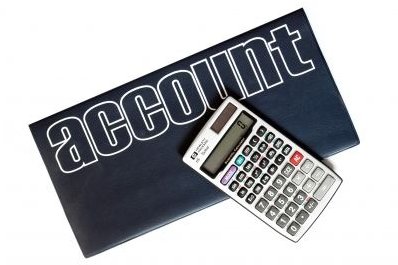What Financial Records to Bring to Divorce Mediation
Financial Complications and Divorce
When couples are divorcing, there is already a great deal of stress and emotions are generally running high. One way to keep divorce mediation from turning into a shouting match is to have the proper financial records with you when attending your mediation sessions. It may surprise you what financial records you should bring to a divorce mediation. For ease of reading along, we will discuss these records by breaking them out into easy to follow sections with a description of the appropriate proof required to prove each category. These categories are most easily described as:
- Personal assets - assets that are owned in the name of only one spouse
- Joint assets - assets that are owned in the name of both spouses
- Personal liabilities - debts that are owed by only one spouse
- Joint liabilities - debts that are owed by both spouses
- Company assets - if one spouse (or both) have their own business these are the assets of the company
- Company liabilities - if one spouse (or both) have their own business these are the liabilities of the company
- Contingent assets - assets that will be acquired upon the death of the current owner or settlements
- Contingent liabilities - debts that are cosigned by one or more parties to the divorce
Personal and Joint Assets and Documentation
Divorces mean that there is going to be some division of property between the parties involved. Mediators are trained to ask the right questions to find out what assets may be owned by one or more parties. Here are some of the potential personal assets that a divorcee may have and what documents are required to prove the value of those assets:
Income - standard income from a job will be required to be proven during divorce mediation. In most cases, the most recent months paystubs will be sufficient to prove income that is ongoing. If there has been a decrease or increase in income, it is a good idea to bring at least the last two or three years of tax returns to a divorce mediation;
Bank accounts - checking accounts, savings accounts, individual retirement accounts and certificates of deposit should all be disclosed during a divorce mediation. Accounts that are held in single names or as joint marital accounts should be disclosed. The documentation that is required is typically an up-to-date bank statement that is not more than thirty days old. In the event that any of these accounts do not provide a monthly statement, it is a good idea to contact the appropriate bank and request a value in writing;
Brokerage and mutual fund accounts - any financial accounts held by a brokerage including mutual fund accounts, stock accounts, DRIPs (dividend reinvestment plans), or other securities in the name of either one party or both parties to the divorce. The documentation generally consists of the most recent monthly (or quarterly) statement along with an up-to-date statement showing the value within the last thirty days;
Retirement accounts - retirement accounts that are held at an employer, bank, broker dealer or other custodian will require the most recent statement. Contact all custodians and obtain a current valuation as well as a statement indicating how often a retirement account is being funded;
Life insurance policies - while not all life insurance policies have a cash value, proof of these policies as well as statements from the insurance company indicating the cash value should be provided. It is also important to note that if these life insurance policies show the spouse listed as beneficiary, the mediation may result in them being kept on as beneficiary.
Remember, this list applies to all accounts whether they are in one name or are in both names. This list also applies to other assets which may be jointly held by a third party including children, parents, etc.
Please go to page 2 for information about liabilities and other financial records you need to bring to your divorce mediation meetings.
Personal and Joint Liabilities and Documentation

Proof of liabilities owed by one or two parties to a divorce are a vital part of what financial records to bring to a divorce mediation. Without an accurate list of the debts that are owed by the parties involved in the mediation, there are liable to be problems later. When couples divorce and their finances are entangled, it is helpful to make sure that they are accurately represented during the mediation process. Here are some of the liabilities that must be disclosed during the mediation process.
Credit card bills - whether the debts are in the name of one or both parties to the divorce, a full statement of credit card debt must be provided to the mediator. This is often a fairly simple process as they can be handled by supplying the most current statement. It is important that inactive cards be reviewed, especially if they are in both names, as they may need to be cancelled;
Automobile loans - those who are going through the divorce process should disclose any and all automobile loans during mediation. Generally, auto loans are payable over a maximum of five years but regardless of how much time is left on the car loan note, proof of the loan as well as the balance should be provided. Do not forget auto leases when creating a list of liabilities;
Home loans - whether the marital home is owned by one or both parties to the divorce, a current copy of the mortgage payments due monthly will be required. If the couple (or one person) has investment property, these documents should also be brought to a divorce mediation. First mortgages, second mortgages and home equity loans all have notes that are attached to them. Copies of the notes as well as a current statement of how much is owed on each loan should be obtained;
Student loans - if either spouse has student loan obligations, proof of these obligations will be required. Remember, most student loans are in the name of only one person, though the couple may have co-signed a student loan for a child;
Retirement plan and/or insurance loans - loans that have been taken out against insurance policies or retirement plans should also be discussed during a divorce mediation. These loans not only have an impact on the value of these plans but they also may require payments on a monthly or quarterly basis;
Child maintenance debts - if either spouse was previously divorced, there may be a maintenance agreement in place with a former spouse. These debts should be included as part of the liability discussion in a divorce mediation;
Personal loans - if either spouse has borrowed money from a friend, family member or the company they work for, a statement of the original loan amount, interest payments and balance should be provided.
In order to ensure that liabilities are disclosed completely, each party may wish to consider requesting a free copy of their credit report. This will help ensure that all liabilities are accounted for and that additional debt is not a surprise to either party later on.
Please continue to page 3 for a discussion on other pertinent financial documents regarding owned business ventures
Business Assets and Liabilities During Divorce

The financial picture of a couple who is involved in any business is generally more complex than that of couples who are employed by companies. In the event that one or both are owners or part owners in a business venture, the following items should be provided during divorce mediation. Having an accurate financial picture of the net worth of an individual and a couple is a necessity in determining the division of assets and liabilities. When couples are in the process of divorce and one or both parties have an interest in a business, they will need to know what financial records to bring to divorce mediation sessions for the best outcome.
Profit and loss statement - an up-to-date profit and loss statement should be provided during the mediation process. This can be prepared either by an accountant (and audited) or be completed by the individual involved in the company. Whichever method is used, it must be accurate;
Business tax records - in most cases a divorce mediator will require at least one and possibly more years of business tax returns. This is especially important for well established business ventures. Remember, the more information that is provided during mediation, the fewer questions that will arise later;
Business banking records - all banking records including checking accounts, lines of credit, loans, savings accounts, etc., should be proven during the mediation process. Providing these records up-front will prevent disputes later in the process;
Lease agreements - copies of all lease agreement including vehicles, property and/or equipment must be provided. This will help provide a better overall picture of the strength (or weakness) of the company.
Divorcing couples that have one or more parties involved in a business often have employees, key life insurance policies and other financial obligations. Any documents that show the overall financial status of the company should be provided during the divorce mediation process.
Contingent Liabilities and Assets
Another typically overlooked group of assets and liabilities may require specific financial documents to bring to a divorce mediation. this group of assets and liabilities would be contingent on an offsetting event. Some of the items to consider are:
Loans where either party is a co-signor - If either spouse is a co-signor on a loan there is a chance that they could be liable in the future for that loan. This may be a car loan, home loan or student loan. While this may not have an impact on the ultimate divorce settlement, there may still be valid reasons for their disclosure;
Transfer on Death (TOD) assets - These assets are passed on only in the event of the death of the current owner. While the assets are not currently owned, oftentimes there are rules that prohibit these items from being transferred to any other party. This is true with beneficiary deeds or assets that are part of an irrevocable trust.
While these assets and liabilities may not be considered as relevant during the divorce mediation process, it may still be helpful to have the documentation available in the event that a question arises.
Resources
Sources:
Nolo - Law for All
- Will Collaborative Divorce Work for You? https://www.nolo.com/legal-encyclopedia/will-collaborative-divorce-work-you-29837.html
- Stoner, Katherine; Divorce Without Court A Guide to Mediation & Collaborative Divorce https://www.nolo.com/products/divorce-without-court-DWCT.html
- Divorce Mediation FAQ https://www.nolo.com/legal-encyclopedia/divorce-mediation-faq-29035.html
Author’s personal experience
Image Credits:
- Assets via freedigitalphotos.net/Kittikun Atsawintarangkul
- Liabilities via freedigitalphotos.net/Salvatore Vuono
- Business assets and liabilities via fredigitalphotos.net/worradmu
